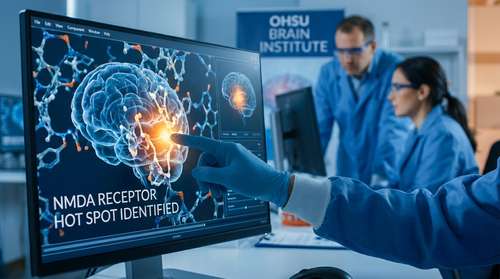Gabapentin Users May Face 85% Higher Cognitive Impairment Risk
Recent findings might make you pause when you hear the word Gabapentin. This medication, widely used to manage seizures and nerve pain, is now linked with an 85% higher chance of cognitive impairment. The study, which analyzed data from over 26,000 adults, shows that individuals receiving six or more prescriptions are particularly at risk. If you or someone you know relies on Gabapentin, this news is definitely worth exploring further.
It’s not every day that we encounter research highlighting such a pronounced impact on brain function. With so many patients depending on this drug, understanding the potential neurological effects is essential. Talk about unsettling! It raises questions about the delicate balance between relief from chronic pain and the inherent risk to cognitive health.
Even as we appreciate the benefits Gabapentin might offer for seizure control and nerve pain relief, the shadows of possible drug side effects are hard to ignore. This situation is like walking a tightrope, where one misstep could result in significant consequences for your mental clarity.
Understanding Gabapentin: Its Role and Uses
Before diving deep into the risks, let’s take a step back and understand what Gabapentin actually does. This medication has been a common tool in the pharmaceutical arsenal for dealing with seizures and neuropathic pain. But as with most prescription medications, its impact on the brain extends beyond its initial purpose.
Gabapentin works by stabilizing electrical activity in the brain, which, on the surface, seems quite beneficial. However, every medication carries potential side effects. In this case, emerging concerns over its neurocognitive effects have pushed healthcare professionals to consider whether the benefits truly outweigh the risks. Ever wonder why some medications, despite being revolutionary, later reveal hidden dangers? This is a classic example of that scenario.
The drug has been a lifeline for many dealing with intense pain, but when we factor in what this study suggests, it calls for a balanced discussion on prescription medication risks. The importance of patient safety and ongoing clinical research in the field of drug side effects cannot be overstated.
Cognitive Impairment: The Hidden Danger
The term cognitive impairment covers a spectrum of issues affecting memory, attention, and overall brain function. It’s surprising to see a drug designed to help with pain control and seizures potentially leading to such side effects. This finding makes you stop and wonder: “At what cost does relief come?”
For many users, the realization that their medication may have long-term mental health ramifications is indeed concerning. Cognitive impairment isn’t just about forgetting a few words or losing focus; it can profoundly impact daily life, affecting everything from work performance to personal relationships. The metaphor of an unwelcome guest in your home fits perfectly here—slowly, it makes itself felt, often unnoticed until it’s too late.
In this context, the reported 85% higher risk isn’t just a number—it reflects a significant increase in potential neurocognitive effects that many might have never considered when starting their prescription. It’s a reminder that even common medications demand cautious monitoring to safeguard your brain function.
Study Overview: Key Findings and Analysis
An extensive study involving over 26,000 adults has cast new light on Gabapentin’s impact on cognitive health. The study noted that adults, especially those between the ages of 35 and 49, showed an alarming 85% higher risk of developing cognitive issues when their prescriptions reached a frequency of six or more.
This research is more than just academic—it has real-world implications. What stands out is the age group most affected. Adults in their prime working years are facing these side effects, which could compromise not only their professional lives but also their overall quality of life. The analysis underscores the need for more nuanced prescribing guidelines and constant patient monitoring.
Researchers and healthcare professionals alike emphasized that while Gabapentin remains effective for its initial uses, users and prescribers need to be alert to potential drug safety concerns. These findings also urge further clinical research into the neurological effects of long-term Gabapentin usage. In plain language, the study tells us that what seems like a routine prescription might have far-reaching consequences over time.
The increasing awareness of prescription medication risks showcases why every piece of new pharmaceutical research is crucial. It’s a good reminder to ensure that every treatment plan balances benefits with potential side effects.
Implications for Patient Safety and Healthcare
This research opens the door for a larger conversation about patient safety. It’s not just about one medication—it's about how we approach prescription practices as a whole. The potential 85% higher risk of cognitive impairment demands that healthcare providers rethink long-standing habits in prescribing Gabapentin.
Imagine knowing that something meant to ease your discomfort could slowly erode your mental sharpness over time. It’s like trading one problem for another, often more insidious, one. This issue underscores why constant dialogue between patients and healthcare providers is so critical. If you're taking Gabapentin, you should feel empowered to ask your doctor, 'Is this medication safe for me in the long term?'
With mental health and cognitive function becoming increasingly intertwined with overall well-being, these findings serve as a wake-up call. It’s essential that we keep a close eye on the neurological effects of all prescription medications and ensure that any potential side effects are weighed heavily against therapeutic benefits. One might say the road to patient awareness is paved with informed discussions and updated research.
Healthcare systems need to adapt by not only monitoring the side effects of drugs like Gabapentin but also by considering alternative therapies where feasible. The medical community is more aware today than ever before about the complexities of brain function and the delicate balance required in medication impact.
Moving Forward: Patient Awareness and Monitoring
Now that we have deeper insights, the question remains—what should patients do? It begins with awareness. If you’re a Gabapentin user, being informed about potential cognitive risks is the first step in safeguarding your mental health. Always discuss any new symptoms or changes in cognitive abilities with your healthcare provider.
It is helpful to consider this information as just one conversation among many that guide your overall treatment plan. Continuous dialogue regarding mental health and the potential side effects of any drug, including Gabapentin, adds a vital dimension to patient safety. Knowing that there might be drug side effects that could affect your brain function should empower you to ask tough questions.
Pharmaceutical research is an ongoing process, and studies like this one show that no matter how established a drug might be, its long-term impacts need regular re-evaluation. We owe it to ourselves to monitor these effects closely, ensuring that prescription medication risks are clearly communicated and managed effectively.
At the end of the day, the balance between benefit and risk is a personal journey, one that must be navigated with the help of informed healthcare professionals. Remember, your health is the most important asset you have.
In summary, this study on Gabapentin users and their elevated risk for cognitive impairment is a clear call for heightened patient awareness and improved monitoring practices in healthcare. Stay alert, ask questions, and, most importantly, take charge of your well-being!




